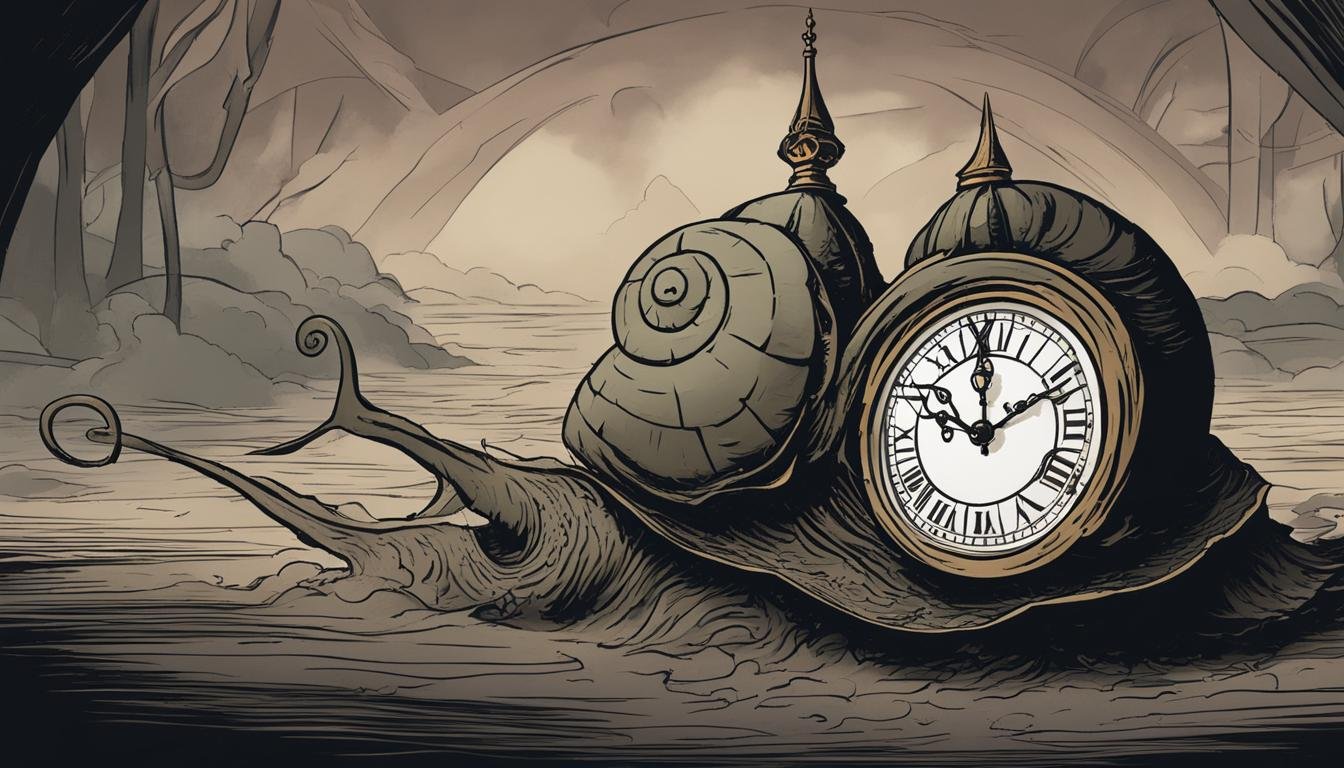Probate is the legal process of finalizing a deceased person’s debts and assets. However, it can be a time-consuming process due to various factors. If you’re wondering why probate takes so long, let’s explore the reasons behind it.
Key Takeaways:
- The speed of filing forms, absence of a valid will, and complexity of the estate’s assets can contribute to the duration of probate.
- Delays with tax issues, family disputes, multiple beneficiaries, and real estate owned in multiple states can also prolong the probate process.
- In some cases, involving a probate attorney may cause further delays and expenses, so it’s essential to consider the specific circumstances and complexity of the estate before making a decision.
- Each step within the probate process can take weeks or even months, and the overall duration can range from a few months to over a year.
- While there is no specific time limit for probate, planning in advance, avoiding assets going through probate, and seeking professional assistance can potentially speed up the process.
Factors That Can Slow Down the Probate Process
Probate is a legal process that can often take longer than expected due to various factors. Understanding these factors can help you navigate the process more effectively. Here are some common issues that can slow down the probate process:
Lack of Proper Documentation
One of the main causes of delays in probate is a slow start in submitting the necessary documents to the court. This includes obtaining the death certificate, locating the will (if there is one), and filing the appropriate forms. Any missing or incomplete documentation can lead to significant delays, as the court requires accurate information to proceed with the process.
Complex Assets and Debts
If the deceased person had complex assets or debts, it can complicate the probate process. This includes managing investments, businesses, real estate properties, or significant debts. Valuing and distributing these assets properly requires time and expertise, which can contribute to delays.
Family Disputes and Legal Challenges
Family disputes and legal challenges can also slow down probate. If there are disagreements among beneficiaries or potential heirs, it may require court intervention to resolve the issues. Additionally, if someone contests the validity of the will or raises other legal challenges, the probate process can be prolonged.
It is important to note that involving a probate attorney can sometimes cause further delays. While an attorney can provide valuable guidance, their involvement may lead to additional steps and paperwork, which can take time to complete.
Understanding these factors can help you anticipate potential delays and take steps to minimize them. By being prepared, gathering all necessary documents, and seeking professional advice when needed, you can navigate the probate process more smoothly.
Should You Hire a Probate Attorney?
When faced with the probate process, many individuals wonder whether they should hire a probate attorney to assist them. While there are advantages to having legal expertise, it is essential to consider the pros and cons before making a decision.
The Pros
One of the key benefits of hiring a probate attorney is their knowledge and experience in navigating the complexities of the probate process. They can guide you through each step, ensuring that you meet all legal requirements and deadlines. With their expertise, they can help expedite the process, potentially reducing the overall duration.
Additionally, a probate attorney can handle any disputes that may arise among family members or beneficiaries. They can act as a neutral third party and advocate for your interests, minimizing potential conflicts and ensuring a fair distribution of assets. This can provide peace of mind during a challenging and emotional time.
The Cons
However, it is important to recognize that hiring a probate attorney can come with some drawbacks. One primary consideration is the cost. Attorneys typically charge fees based on a percentage of the estate’s value or an hourly rate, which can significantly impact the overall expenses of the probate process.
Furthermore, involving an attorney can sometimes lead to delays. Initial consultations and document preparations may take time, which can prolong the probate process. Additionally, the attorney’s availability and workload may affect the timeline, as they prioritize their clients and cases accordingly.
Ultimately, the decision of whether to hire a probate attorney should be based on the specific circumstances and complexity of the estate. It may be beneficial to consult with an attorney to discuss your options and evaluate the potential advantages and disadvantages.

How Long Does Probate Usually Last?
The duration of the probate process can vary greatly depending on several factors. On average, each step of the process can take weeks or even months to complete. It’s important to understand the typical probate timeline to manage expectations and plan accordingly.
One of the initial steps in the probate process is filing a court petition and notifying various parties involved. This can take anywhere from 1 to 3 months to complete. The next step involves taking possession of the estate’s assets and accounts, which can take between 1 to 6 months.
Another aspect that contributes to the length of probate is the payment of estate expenses. This can take anywhere from 1 to 9 months to settle. Overall, the entire probate process, from notifying the court to closing the estate, can range from a few months to over a year.
The Importance of the Creditor Claim Period
One factor that can significantly impact the duration of probate is the creditor claim period. During this period, creditors have the opportunity to submit claims against the estate. The length of this period varies depending on state laws, but typically ranges from 3 to 6 months.
It’s important to consider the creditor claim period when estimating the overall duration of probate. This period allows sufficient time for creditors to come forward and make their claims, ensuring that the deceased person’s debts are properly addressed before the estate is distributed to beneficiaries.
While the probate process can seem lengthy, it’s essential to remember that every estate is unique, and there is no specific time limit for how long probate can take. However, being proactive and seeking professional assistance can help reduce the overall time and complexity involved.
Conclusion
While the probate process can be lengthy, there are steps you can take to potentially speed it up and reduce the overall time and complexity involved.
One way to expedite matters is by planning and organizing your estate in advance. By having a clear and detailed estate plan, you can streamline the probate process and ensure that your wishes are carried out efficiently.
Another option to consider is avoiding the need for assets to go through probate altogether. Creating a trust can help bypass the probate process for certain assets, allowing for a quicker distribution of property to beneficiaries.
It is important to note that there are no specific time limitations for how long probate can take, as each estate is unique and the duration can vary. However, by being proactive and seeking professional assistance, you can navigate the probate process with greater ease and reduce the overall time involved.
FAQ
Why does probate take so long?
Probate can take a long time due to various factors, including the speed of filing forms, the absence of a valid will, and the complexity of the estate’s assets. Other reasons for lengthy probate include delays with tax issues, family disputes, multiple beneficiaries, and real estate owned in multiple states.
What can slow down the probate process?
The probate process can be delayed by issues such as a slow start in submitting the necessary documents to the court, complex assets to manage, more debt than assets, the absence of a will, delays with tax returns, family disputes, multiple beneficiaries, and real estate in different states. Involving a probate attorney can sometimes cause further delays.
Should you hire a probate attorney?
Many people choose to hire a probate attorney to navigate the probate process, but this may not always be necessary. Hiring an attorney can lead to additional expenses and potential delays in the process. Initial consultations with lawyers can take weeks, and the preparation of initial probate pleadings can further prolong the process. It is important to consider the specific circumstances and complexity of the estate before deciding whether to hire a probate attorney.
How long does probate usually last?
Each step of the probate process can take weeks or even months. The court petition and notifying various parties can take 1-3 months, taking possession of estate assets and accounts can take 1-6 months, and paying estate expenses can take 1-9 months. The overall process of notifying the court and closing the estate can range from a few months to over a year. The creditor claim period is an important factor in determining the duration of probate.
How can I speed up the probate process?
While the probate process can be lengthy, there are steps you can take to potentially speed it up. Planning and organizing your estate in advance can help streamline the process. Avoiding the need for assets to go through probate, such as by creating a trust, can also expedite matters. It is important to understand that there is no specific time limit for how long probate can take, but being proactive and seeking professional assistance can help reduce the overall time and complexity involved.

